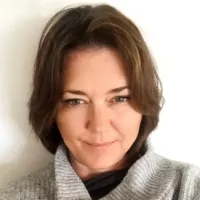- with readers working within the Technology industries
- within Transport, Real Estate and Construction and Law Practice Management topic(s)
Police have arrested more than 800 alleged members of criminal syndicates around the world by using an innovative phone app that tricked them into believing their communications could not be monitored or traced.
Technology and innovation |
The encrypted app worked in a similar way to mainstream communication apps like Snapchat and WhatsApp, and was secretly distributed amongst suspected criminals via customised phones in a joint operation between Australian Federal Police and the American FBI.
The app, known as ANOM, was secretly run by law enforcement authorities, enabling officers to view chats "in real time" about the alleged supply of prohibited drugs, money laundering and even murder plots.
Police came up with the idea after two other encrypted platforms were taken down by law enforcement agencies, leaving alleged crime syndicates in the market for new, secure phones.
It's been reported that police had taken control of a communications firm called ANOM around three years ago, after a convicted criminal promised them access to it in return for a more lenient sentence. The devices were billed as super-secure and police made the app seem even more bonafide by charging a monthly subscription fee.
The operation was set up so that to get hold of one of the customised phones, with the app, you had to know a criminal. This created the 'trust' factor that allowed the phones to be circulated and used widely.
The phones could not make calls or support email and people could only communicate using the same platform. In total, 12,000 encrypted devices were used by about 300 criminal syndicates in more than 100 countries.
The role of the Australian fugitive |
Police say that Australian fugitive and alleged heroin trafficker Hakan Ayik was key to the sting. Considered a 'key influencer' amongst criminals, with links to drug networks and gangs. He was given a handset by undercover officers and then recommended the app to others.
Mr Ayik is believed to be living a luxurious life in Turkey, evading arrest, and police are now urging him to hand himself over to authorities for the sake of his own safety because he unwittingly helped police to carry out the worldwide sting.
It's alleged he is one of the underworld figures at the centre of the "Aussie Cartel" a group responsible for smuggling an estimated $1.5bn of drugs every year into Australia.
Worldwide impact on organised crime |
The operation itself is believed to have put a large dent in some of the world's largest criminal gangs, and has been described as 'innovative, bold and ambitious. It has had significant results. Drugs, weapons, luxury vehicles and cash were also seized in the operation, which was conducted across more than a dozen countries. This included eight tonnes of cocaine, 250 guns and more than $48m in various worldwide currencies and cryptocurrencies.
In Australia alone 224 people were arrested including members of outlaw motorcycle gangs, mafia groups, Asian crime syndicates, and serious and organised crime groups.
Police said they also seized three tonnes of drugs, more than $40m in cash and assets, and acted on 20 "threats to kill".
About 9,000 police officers around the globe were involved in the operation. In the US, the FBI unsealed an indictment against 17 people for distributing the ANOM-enabled devices – eight have so far been arrested, while the rest are on the run. In Europe, it's been reported that 70 people in Sweden and 49 in the Netherlands were arrested.
For years there have been fears that technology, in the form of encrypted apps, the dark web and crypto currencies would mean that criminals would be able to better hide their illegal activites from authorities, but as this operation has shown, innovative use of technology is also making it easier for police to catch suspected criminals and to cooperate more closely with each other over multiple international jurisdictions.
The content of this article is intended to provide a general guide to the subject matter. Specialist advice should be sought about your specific circumstances.
[View Source]

